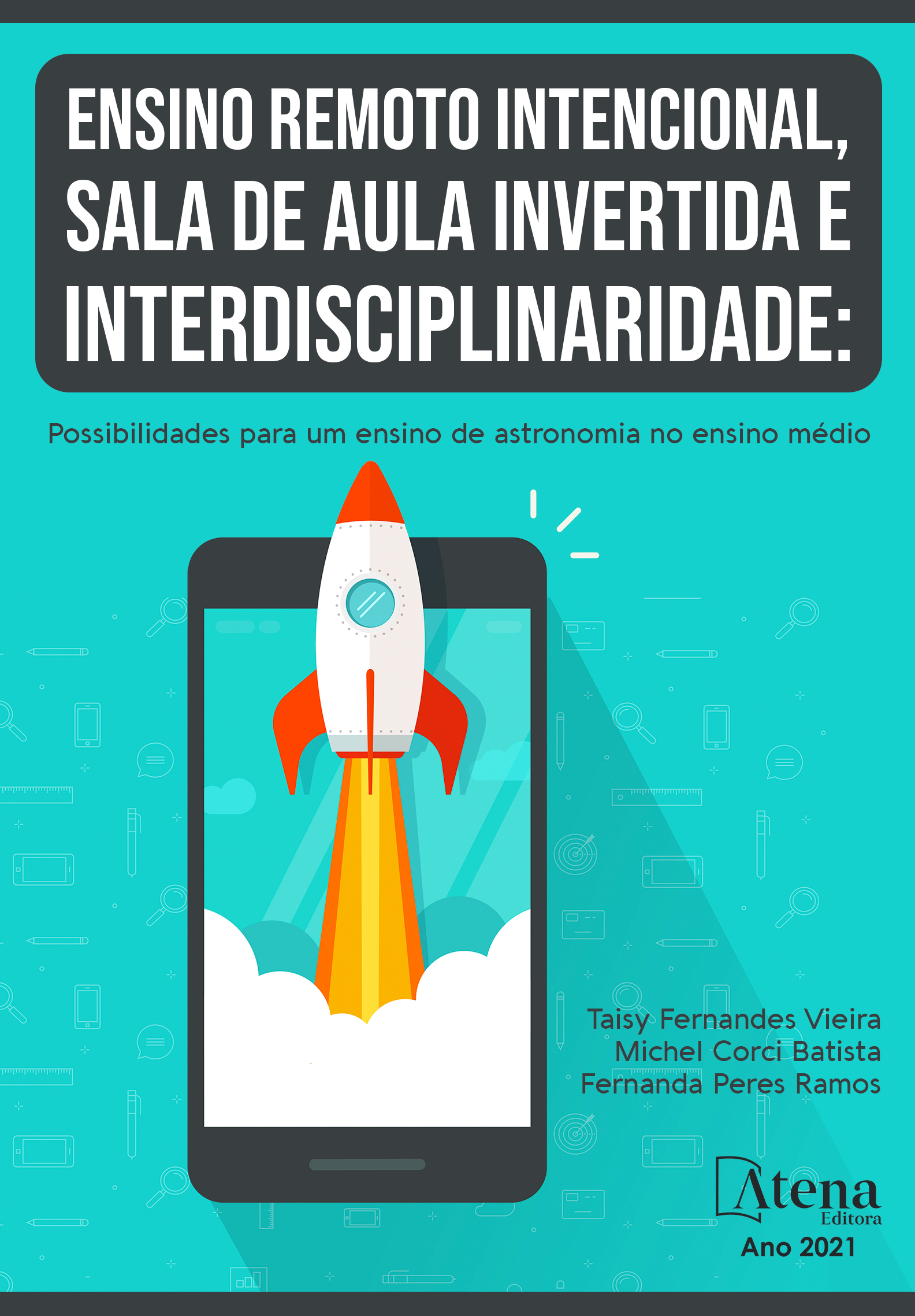
ENSINO REMOTO INTENCIONAL, SALA DE AULA INVERTIDA E INTERDISCIPLINARIDADE: Possibilidades para um ensino de Astronomia no Ensino Médio
Pensando no cenário educacional e o memento atual que a sociedade está inserida, é que nos motivamos a buscar por técnicas e estratégias de ensino que pudessem despertar a atenção do aluno para o estudo da Física bem como promover uma aprendizagem efetiva.
Nesse sentido buscamos apoio teórico no ensino remoto intencional, que por sua vez se difere do ensino a distância (EAD), visto que no ensino remoto intencional o professor da turma planeja as ações da aula, executa, acompanha o desenvolvimento dos alunos, tira suas dúvidas e avalia. Nesse ensino cada turma é única, diferente do EAD que acontece em rede, a mesma aula é ministrada para diferentes regiões do país, o professor não conhece seus alunos, não os acompanha e todo o processo se dá a partir de tutores que muitas vezes nem possuem formação para tal.
Essa proposta didática foi produzida com o intuito de contribuir com os professores de Física que ministram o conteúdo de Gravitação Universal, todo o conteúdo está direcionado para o Ensino Médio. A proposta está construída tendo como aporte teórico a teoria de aprendizagem de Gagné, a perspectiva teórica da interdisciplinaridade e a metodologia ativa conhecida como sala de aula invertida.
ENSINO REMOTO INTENCIONAL, SALA DE AULA INVERTIDA E INTERDISCIPLINARIDADE: Possibilidades para um ensino de Astronomia no Ensino Médio
-
DOI: https://doi.org/10.22533/at.ed.194210107
-
Palavras-chave: Educação em Astronomia. Pluralidade metodológica. Ensino remoto.
-
Keywords: Astronomy Education. Methodological plurality. Remote teaching.
-
Abstract:
Thinking about the educational scenario and the current situation that society is inserted in, it is that we are motivated to look for teaching techniques and strategies that could awaken the student's attention to the study of Physics as well as promoting effective learning.
In this sense, we seek theoretical support in intentional remote teaching, which in turn differs from distance learning (EAD), since in intentional remote teaching the class teacher plans the actions of the class, executes, monitors the development of the students, takes their doubts and evaluates. In this teaching, each class is unique, different from distance learning that takes place in a network, the same class is taught to different regions of the country, the teacher does not know his students, does not accompany them and the whole process takes place from tutors who often do not even have training for this.
This didactic proposal was produced with the intention of contributing with the physics teachers who teach the content of Universal Gravitation, all the content is directed to the High School. The proposal is built on the theoretical support of Gagné's learning theory, the theoretical perspective of interdisciplinarity and the active methodology known as the inverted classroom. -
Número de páginas: 218
- Taisy Fernandes Vieira
- Fernanda Peres Ramos
- Michel Corci Batista


